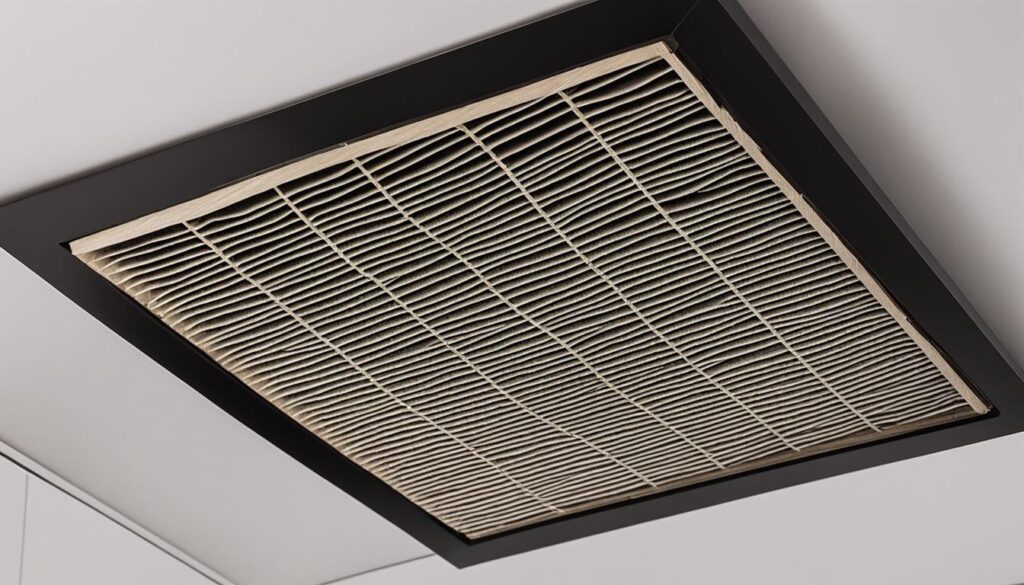Indoor air pollution is a pressing concern, with levels 2-5 times higher than outdoor air. Poor indoor air quality can worsen respiratory conditions and allergies, affecting the health and well-being of occupants. To combat this issue, homeowners and businesses are increasingly turning to reusable air filters for their HVAC systems.
Reusable air filters offer a sustainable and eco-friendly solution to improve indoor air quality. Made from durable materials, these filters can be washed and reused, eliminating the need for frequent replacements. By capturing airborne pollutants, such as dust, pollen, and pet dander, reusable air filters improve the overall air quality within a space, promoting healthier living and working environments.
When considering reusable air filters for HVAC systems, it’s important to choose filters that offer both efficiency and durability. Filters with a high Minimum Efficiency Reporting Value (MERV) rating effectively capture a wide range of particles, ensuring cleaner air. Additionally, filters made with high-quality materials can withstand regular washing and maintain their effectiveness over time.
Key Takeaways:
- Reusable air filters are an eco-friendly option to improve indoor air quality for HVAC systems.
- They can be washed and reused, reducing the need for frequent replacements and contributing to less waste.
- High-quality reusable filters offer efficient filtration and durability.
- They capture a wide range of airborne particles, including dust, pollen, and pet dander.
- Choosing reusable air filters promotes healthier living and working environments.
Importance of High-Quality Air Filters
When it comes to maintaining a clean and healthy indoor environment, high-quality air filters play a crucial role. These filters are designed to purify the air by capturing harmful particles and contaminants, ensuring that you and your family breathe in clean and safe air. Whether you have allergies, asthma, or simply want to improve the overall air quality in your home, investing in high-efficiency HVAC filters is essential.
Filters with a high MERV rating:
One of the key indicators of filter quality is the Minimum Efficiency Reporting Value (MERV) rating. A higher MERV rating indicates that the filter is capable of capturing smaller particles, including allergens, dust, pet dander, and even bacteria and viruses. It is recommended to choose air filters with a MERV rating of at least 8 to effectively remove a wide range of particles from the air.
Durability is key:
Another important factor to consider when selecting air filters is durability. Durable HVAC air filters can withstand regular use and maintain their effectiveness over time. These filters are designed to last longer, reducing the need for frequent replacements and saving you money in the long run. Additionally, durable filters contribute to a more sustainable approach by reducing waste.
Choose Efficiency and Durability for Cleaner Indoor Air
By investing in high-efficiency HVAC filters, you can ensure that your indoor air is free from pollutants and allergens that can trigger respiratory issues and other health complications. Furthermore, opting for durable air filters guarantees that your filtration system remains efficient and effective for an extended period, providing you with long-term peace of mind.
Remember, high-quality air filters are an investment in both your health and the environment.
In the following section, we will explore the limitations of disposable air filters and the benefits offered by reusable air filters.
Disposable Air Filters
Disposable air filters are a commonly used option for heating and cooling systems. They provide a cost-effective solution for improving indoor air quality by capturing dust, pollen, and other contaminants. These filters are designed to be replaced every 2-3 months, ensuring optimal performance.
However, it is important to consider the limitations of disposable filters. While they may be convenient and affordable, they contribute to plastic waste, which can have negative environmental consequences. Additionally, disposable filters may not provide the same level of filtration as reusable filters, potentially allowing some particles to circulate in the air.
Despite these limitations, disposable filters remain a popular choice for many homeowners due to their cost-effectiveness and ease of use. For those who prioritize convenience and affordability, these filters can still offer a satisfactory level of air purification.
The Pros and Cons of Disposable Air Filters
It is essential to weigh the pros and cons of disposable air filters before making a decision for your heating and cooling system. Here is a comparison:
| Pros of Disposable Filters | Cons of Disposable Filters |
|---|---|
| Cost-effective | Contribute to plastic waste |
| Convenient to replace | Potential lower filtration efficiency |
| Readily available |
While disposable air filters offer affordability and ease of use, it is also important to consider the environmental impact and the potential compromise on filtration efficiency. For those looking for a more sustainable and longer-lasting option, exploring reusable air filters may be beneficial.
Reusable Air Filters
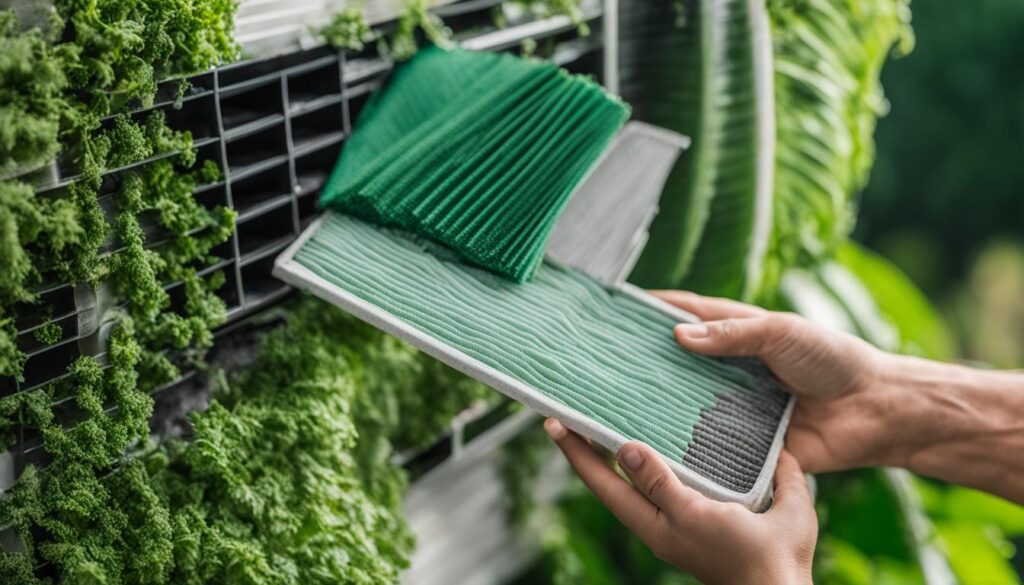
When it comes to maintaining a clean and healthy indoor environment, reusable air filters offer a sustainable and eco-friendly solution. Unlike disposable filters that need frequent replacements, reusable filters can be used for 2-10 years, making them a cost-effective choice. These filters are designed to capture airborne particles and impurities, improving indoor air quality and reducing the risk of respiratory issues.
One of the key advantages of reusable air filters is their ease of maintenance. They can be easily cleaned and reused, eliminating the need for constant replacements. By cleaning the filters regularly, homeowners can ensure optimal performance and prolong the lifespan of the filters, saving both money and resources.
Choosing High-Quality Reusable Filters
It’s important to note that not all reusable filters are created equal. Some filters may have lower MERV ratings, which indicate their effectiveness in capturing airborne particles. A MERV rating of 8 or above is recommended for optimal filtration efficiency. Therefore, it’s crucial to choose high-quality reusable filters that offer both durability and efficiency.
| Benefits of Reusable Air Filters | Considerations |
|---|---|
|
|
By selecting high-quality reusable air filters and implementing regular maintenance, homeowners can enjoy improved indoor air quality while reducing their environmental impact. Reusable filters not only provide long-term cost savings but also contribute to a greener and healthier home.
Types of Air Filters
When it comes to HVAC air filters, there are several types to choose from, each with its own advantages and disadvantages. Understanding the differences between these filters can help you make an informed decision for your home or office. Let’s explore the various types of air filters available:
1. Disposable Fiberglass Filters
Disposable fiberglass filters are the most common and affordable option. They consist of layered fiberglass fibers that trap large particles, such as dust and lint. While these filters are inexpensive, they have low efficiency and may not provide adequate filtration for smaller particles.
2. Washable Mechanical Filters
Washable mechanical filters, also known as metal or mesh filters, are made of aluminum or galvanized steel. They can be easily cleaned and reused, making them a more sustainable option. These filters have larger surface areas and are effective at capturing larger particles, but they may not be as efficient for smaller particles.
3. Disposable Pleated Filters
Disposable pleated filters are made of densely packed synthetic fibers that create pleats. This design increases the filter’s surface area, improving its efficiency and capturing smaller particles. Pleated filters are available in different MERV ratings, offering a range of filtration capabilities.
4. HEPA Filters
HEPA (High-Efficiency Particulate Air) filters are considered the gold standard in air filtration. These filters are capable of capturing 99.97% of particles as small as 0.3 microns. HEPA filters are commonly used in hospitals, laboratories, and environments that require the highest level of air quality. However, they may restrict airflow in some HVAC systems and may require modifications for proper installation.
“Choosing the right type of HVAC air filter depends on your specific needs and priorities. Consider factors such as filtration efficiency, cost, and maintenance requirements when making your selection.”
Ultimately, the ideal HVAC air filter for your space will depend on factors such as the level of air pollution, the presence of allergens, and your budget. Consulting with a professional can help you determine the most effective and suitable filter for your HVAC system.
Electrostatic Filters vs. Mechanical Filters
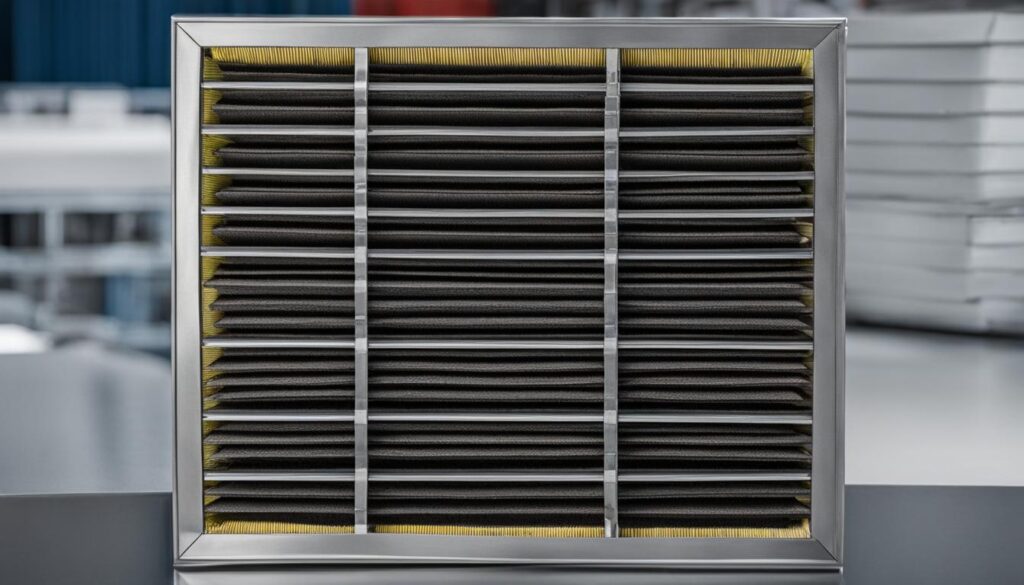
When it comes to choosing the right air filter for your HVAC system, there are two main options to consider: electrostatic filters and mechanical filters.
Electrostatic filters are designed to attract and capture smaller particles through the use of static electricity. These filters are made with self-charging fibers that create an electrostatic field, effectively trapping particles as they pass through. They are particularly effective at capturing allergens like pollen, pet dander, and dust mites. However, they may not be as efficient in capturing larger dust particles.
Mechanical filters, on the other hand, rely on physical barriers to trap particles. One popular type of mechanical filter is the pleated filter, which consists of layers of pleated material that create a large surface area for trapping particles. Mechanical filters can effectively capture a wide range of particles, including both large and small dust particles. Over time, a filter cake can form on these filters, further enhancing their efficiency.
So, which type of filter is right for you? It depends on your specific needs and priorities. If you have allergies or require a filter that can capture smaller particles, an electrostatic filter may be the better choice. However, if you are looking for a filter that can efficiently capture a wide range of particles, including larger dust particles, a mechanical filter like a pleated filter may be more suitable.
Comparing Electrostatic Filters and Mechanical Filters:
| Feature | Electrostatic Filters | Mechanical Filters |
|---|---|---|
| Particle Capture | Effective for smaller particles | Effective for a wide range of particles |
| Efficiency Over Time | May lose efficiency without regular cleaning | Can improve over time with filter cake formation |
| Airflow Restriction | May cause greater airflow resistance | May cause moderate airflow resistance |
| Cost | Varies depending on brand and model | Varies depending on brand and model |
| Maintenance | Regular cleaning or replacement required | Regular replacement required |
Table: Comparing Electrostatic Filters and Mechanical Filters
Ultimately, the choice between electrostatic filters and mechanical filters depends on the specific needs of your HVAC system and indoor air quality goals. Consult with a professional HVAC technician to determine the best filter solution for your home or office environment.
Filti Reusable Air Filters
When it comes to improving indoor air quality and reducing the risk of respiratory issues, Filti reusable air filters are an excellent choice. These filters utilize patented nanofiber technology, making them highly efficient in capturing particles as small as 0.3 microns. With a MERV rating of 13, these filters provide superior filtration compared to many other options in the market.
What sets Filti reusable air filters apart is their advanced nanofiber technology. This technology allows the filters to effectively trap even the tiniest particles, including allergens, dust, and other pollutants. By removing these harmful particles from the air, Filti filters contribute to healthier indoor environments and improved overall well-being.
Choosing Filti reusable air filters also offers long-term benefits. These filters can be used for an extended period, eliminating the need for frequent replacements. Not only does this save on costs, but it also helps reduce waste and lessen the environmental impact.
Additionally, Filti filters are designed to be easy to maintain. They can be rinsed and cleaned regularly, ensuring optimal performance and longevity. This simple cleaning process allows homeowners to enjoy cleaner air without the hassle of constantly purchasing and replacing disposable filters.
Investing in Filti reusable air filters with nanofiber technology is a smart choice for homeowners who prioritize air quality, sustainability, and cost-effectiveness. By trapping particles that other filters might miss, these filters create a healthier and more comfortable living environment for you and your family.
Benefits of Washable Air Filters
Choosing washable air filters for your HVAC system comes with a variety of benefits that not only improve air quality but also promote sustainability. These eco-friendly air filters offer the following advantages:
- Cost Savings: Washable air filters are a cost-effective option in the long run. While they may have a higher initial cost compared to disposable filters, they can be reused for several years without needing frequent replacements. This saves you money on continuously purchasing new filters.
- Reduced Waste: By opting for washable filters, you contribute to reducing waste and your carbon footprint. Reusable filters eliminate the need for frequently discarding disposable filters, which contribute to plastic waste. With washable filters, you can lower your impact on the environment and promote sustainable practices.
- Improved Air Quality: Washable air filters effectively capture dust, pollen, pet dander, and other airborne particles that can hinder indoor air quality. These filters have a high filtration efficiency, ensuring cleaner air throughout your home. Regular cleaning ensures optimal performance, promoting a healthier environment for you and your family.
Make a conscious choice for both your wallet and the environment by investing in washable air filters. They provide a sustainable solution that combines cost savings, reduced waste, and improved air quality.
Maintenance and Cleaning of Washable Filters
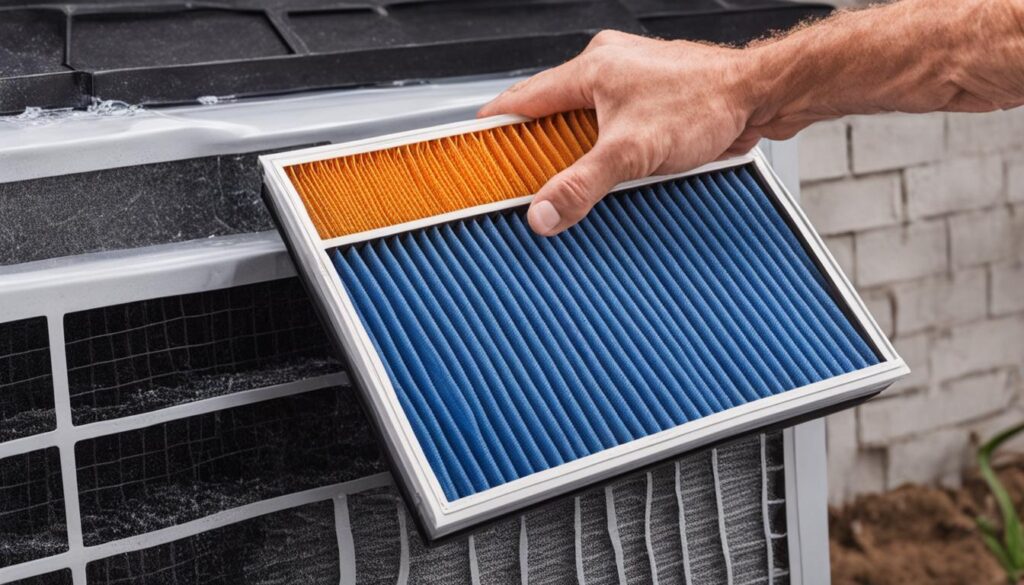
Regular cleaning is essential to ensure the efficiency and effectiveness of washable air filters. By properly maintaining these filters, homeowners can prolong their lifespan and enjoy cleaner indoor air quality.
Cleaning Methods
Washable filters can be cleaned using two simple methods:
- Water: Start by removing the filter from the HVAC system. Gently rinse the filter with water from both sides to remove dust and debris. Avoid using excessive water pressure, as it may damage the filter. Allow the filter to air dry completely before reinserting it into the HVAC system.
- Mild Detergent: For stubborn dirt or grease buildup, a mild detergent can be used. Dilute the detergent in water and soak the filter for a few minutes. Gently scrub the filter with a soft brush to remove the dirt. Rinse the filter thoroughly with water and let it dry completely before reinstalling.
| Cleaning Method | Pros | Cons |
|---|---|---|
| Water | – Easy and convenient – Environmentally friendly – Prevents chemical residue |
– May not remove stubborn stains – Requires complete drying |
| Mild Detergent | – Effective against grease and dirt – Provides a deep clean |
– Requires more effort – May leave behind detergent residue if not rinsed properly |
Note: Always check the manufacturer’s instructions for specific cleaning recommendations. Different filter brands may have unique cleaning requirements.
Regular Maintenance
In addition to cleaning, regular maintenance of washable filters involves inspecting the filter for any damage or wear, such as holes or frayed edges. If any damage is detected, the filter should be replaced to maintain its efficiency.
Proper maintenance and cleaning of washable air filters ensure optimal performance and contribute to a healthier indoor environment.
Comparison with Disposable Filters
When it comes to choosing between washable and disposable filters for your HVAC system, several factors need to be considered. Here, we will compare the cost, performance, and filtration efficiency of these two options.
Cost Analysis
While washable filters may have a higher initial cost compared to disposable filters, they can save you money in the long run. With proper maintenance and regular cleaning, washable filters can be reused for several years, eliminating the need for frequent replacements. On the other hand, disposable filters need to be replaced every 2-3 months, which can add up in terms of cost over time.
Filtration Efficiency and Performance
Disposable filters often come with higher MERV ratings, which indicates their ability to capture smaller particles from the air. They might be more suitable for individuals with specific health concerns that require superior air filtration. However, washable filters can still provide adequate filtration for most households, especially when they are of high quality and have a reasonable MERV rating.
Environmental Impact
Disposable filters contribute to plastic waste, as they need to be discarded and replaced frequently. In contrast, washable filters are more environmentally friendly as they can be reused multiple times, reducing the amount of waste generated. By choosing washable filters, you can make a positive impact on the environment and contribute to a sustainable lifestyle.
Overall, the choice between washable and disposable filters depends on your priorities and specific needs. If cost savings and environmental impact are important to you, washable filters are a great option. However, if enhanced filtration efficiency is your primary concern, disposable filters might be the better choice.
| Cost | Filtration Efficiency | Environmental Impact | |
|---|---|---|---|
| Washable Filters | Higher initial cost, but long-term savings | Adequate filtration for most households | Environmentally friendly, reduces waste |
| Disposable Filters | Lower initial cost, frequent replacements | Higher MERV ratings, better for specific health concerns | Contributes to plastic waste |
Environmental Impact of Washable Filters
When it comes to reducing plastic waste and minimizing our environmental footprint, washable air filters offer a noteworthy solution. These filters have a positive impact on the environment by significantly decreasing the amount of waste generated compared to their disposable counterparts. With each washable filter having the potential to replace multiple disposable filters over its lifespan, the reduction in plastic waste is substantial.
Disposable filters, although convenient, contribute to the growing issue of plastic pollution. These filters are typically replaced every 2-3 months, resulting in a continuous accumulation of discarded filters in landfills. In contrast, washable filters can be reused numerous times, eliminating the need for frequent replacements and reducing plastic waste.
Not only do washable filters help in reducing plastic waste, but they also have a longer lifespan compared to disposable filters. By investing in washable filters, you can use the same filter for multiple years, minimizing your contribution to the disposable filter waste stream.
This eco-friendly choice of using washable filters not only benefits the environment but also promotes sustainable living. By reducing plastic waste, washable filters play a vital role in preserving our natural resources, conserving energy, and creating a cleaner and healthier indoor environment.
Benefits of Filti Washable Furnace Filters
When it comes to maintaining clean and healthy indoor air, Filti washable furnace filters are a game-changer. These filters offer a range of benefits that improve air quality and create a more comfortable living environment.
- Improved Air Quality: Filti washable furnace filters are designed to capture up to 75% of airborne particles, including pollen, allergens, and dust. By effectively trapping these particles, the filters help reduce the presence of common irritants in your home, leading to improved air quality.
- Durability: Unlike disposable filters that need frequent replacement, Filti washable furnace filters are built to last. Made from high-quality materials, these filters can withstand regular use and maintain their effectiveness over time.
- Cost-Effective Solution: Investing in Filti washable furnace filters can save you money in the long run. Instead of purchasing multiple disposable filters throughout the year, these washable filters can be cleaned and reused, minimizing your expenses.
By choosing Filti washable furnace filters, you not only protect your HVAC system but also contribute to a healthier and more sustainable future. These filters offer superior filtration, durability, and cost savings, making them an excellent choice for homeowners who prioritize improved air quality.
With Filti washable furnace filters, you can breathe easy knowing that your indoor air is free from harmful pollutants and allergens. Experience the benefits of these filters and enjoy a clean and healthy indoor environment for you and your family.
Filti Washable Filter Specifications
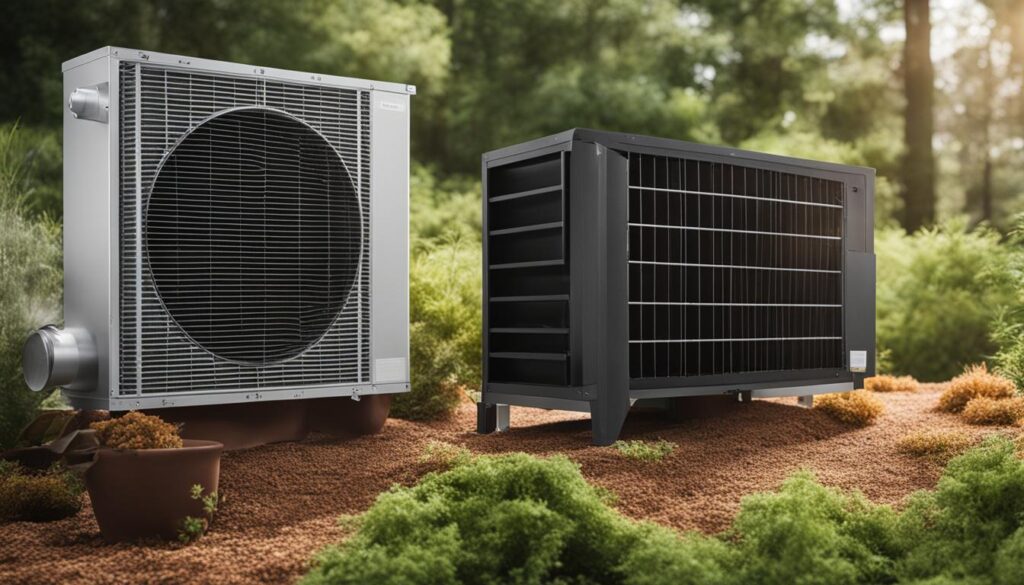
Filti washable filters are designed to provide efficient and long-lasting filtration for HVAC systems. These high-quality filters are available in various sizes and composed of multiple layers, including meltblown and nanofiber technology. With their innovative composition, Filti filters offer superior performance in capturing harmful particles from the air.
When it comes to sizes, Filti washable filters cater to different HVAC system requirements. The sizes range from 14x20x1 to 20x25x1, ensuring a perfect fit for a wide range of air ducts and filter housings. Whether you have a small residential system or a larger commercial setup, Filti has the right filter size for you.
The composition of Filti filters is what sets them apart. The use of meltblown and nanofiber technology ensures enhanced filtration efficiency and durability. The meltblown layer captures larger particles, while the nanofiber layer traps finer particles with impressive precision. This dual-layer design provides comprehensive filtration, leaving you with cleaner and healthier indoor air.
Installing and maintaining Filti washable filters is hassle-free. They are designed for easy installation, allowing you to replace your old filter with ease. Once installed, regular cleaning and maintenance keep the filters performing at their best. Cleaning instructions are provided with each filter to ensure proper care and optimal filtration efficiency.
Experience the benefits of Filti washable filters, from their wide range of sizes to their advanced composition. Improve the indoor air quality of your home or workplace while reducing waste with these eco-friendly and efficient filters.
Conclusion
In summary, reusable air filters, such as the Filti washable filters, are an excellent choice for improving indoor air quality in HVAC systems. These filters offer a sustainable and efficient solution, contributing to a healthier and eco-friendly environment. By opting for high-quality reusable filters and implementing regular maintenance, homeowners can enjoy cleaner air while reducing waste.
Unlike disposable filters, which need to be replaced every few months, reusable air filters can be used for 2-10 years. This not only saves money in the long run but also minimizes the environmental impact by reducing the amount of plastic waste generated. With their durable construction and efficient filtration capabilities, reusable filters provide a reliable and eco-conscious option for HVAC systems.
When choosing reusable air filters, it’s crucial to consider factors such as MERV ratings and filtration efficiency. The Filti washable filters, for example, are equipped with patented nanofiber technology and have a MERV rating of 13. They can effectively capture even the smallest particles, improving air quality and reducing the risk of respiratory issues.
In conclusion, investing in reusable air filters for HVAC systems is a smart choice for both homeowners and the environment. By embracing sustainable solutions like the Filti washable filters, we can breathe easier, knowing that we are making a positive impact on our indoor air quality and the planet.
FAQ
What is the importance of using high-quality air filters?
High-quality air filters are essential for purifying indoor air and reducing the risk of health complications. They have a high MERV rating, effectively capturing harmful particles from the air, improving indoor air quality, and reducing respiratory issues and allergies.
What are the limitations of disposable air filters?
Disposable air filters are cost-effective and convenient to replace every 2-3 months. However, they contribute to plastic waste and may not provide the same level of filtration as reusable filters over time.
Are reusable air filters more environmentally friendly?
Yes, reusable air filters are a more eco-friendly option as they can be used for 2-10 years. They can be easily cleaned and reused, eliminating the need for frequent replacements and reducing plastic waste.
What are the different types of air filters available?
There are various types of air filters, including disposable fiberglass filters, washable mechanical filters, disposable pleated filters, and HEPA filters. Each type has its own benefits and drawbacks in terms of cost, efficiency, and filtration capabilities.
What is the difference between electrostatic and mechanical filters?
Electrostatic filters are great for capturing smaller particles but may not be as effective for larger dust particles. Mechanical filters, such as pleated filters, are designed to trap a wide range of particles and can be more efficient over time as a filter cake forms.
What are Filti reusable air filters?
Filti offers reusable air filters with a patented nanofiber technology. These filters have a MERV rating of 13 and can capture particles as small as 0.3 microns. They are designed to improve air quality and reduce the risk of respiratory issues.
What are the benefits of using washable air filters?
Washable air filters offer cost savings, reduced waste, and improved air quality. They can be reused for several years, eliminating the need for frequent replacements and reducing environmental impact.
How should washable air filters be maintained and cleaned?
Washable air filters should be regularly cleaned with water or a mild detergent and thoroughly dried before reinserting them into the HVAC system. Regular cleaning ensures optimal performance and longevity.
How do washable filters compare to disposable filters?
Washable filters may have a higher initial cost but can save money in the long run. Disposable filters may offer higher MERV ratings but contribute to plastic waste. It is important to consider factors such as cost, performance, and filtration efficiency when comparing the two.
What is the environmental impact of washable filters?
Washable air filters have a positive environmental impact as they reduce plastic waste. One washable filter can potentially replace multiple disposable filters over its lifespan, significantly reducing waste generated.
What are the benefits of Filti washable furnace filters?
Filti washable furnace filters offer improved air quality by capturing up to 75% of airborne particles, including pollen, allergens, and dust. They are durable, long-lasting, and provide a cost-effective solution for maintaining a clean and healthy indoor environment.
What are the specifications of Filti washable filters?
Filti washable filters are available in various sizes, ranging from 14x20x1 to 20x25x1. They are composed of multiple layers, including meltblown and nanofiber technology. The filters are designed for easy installation and maintenance.
How can reusable air filters contribute to a clean and healthy indoor environment?
By choosing high-quality reusable air filters and implementing regular maintenance and cleaning, homeowners can create a healthier, eco-friendly environment while reducing waste and improving indoor air quality.



